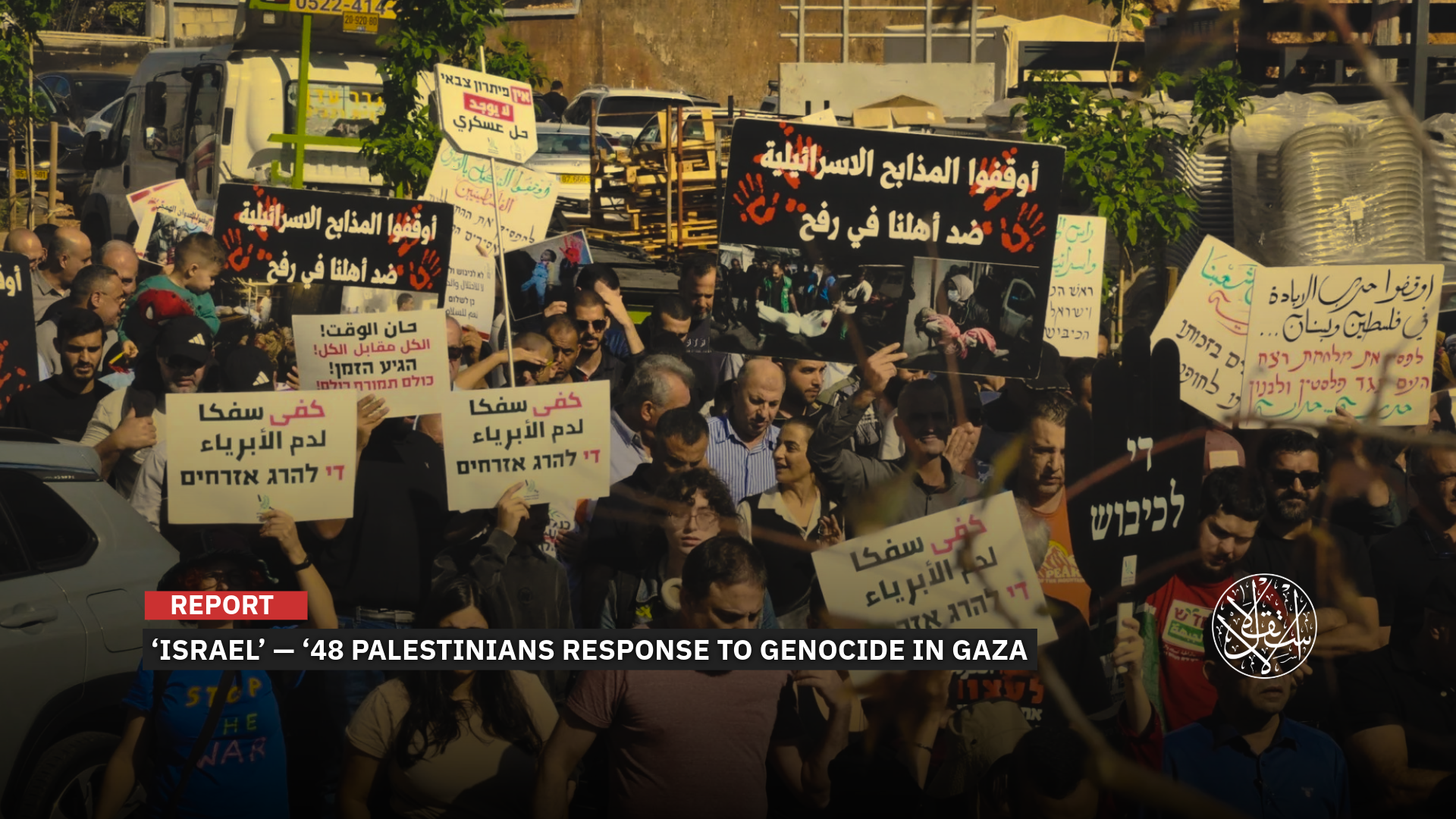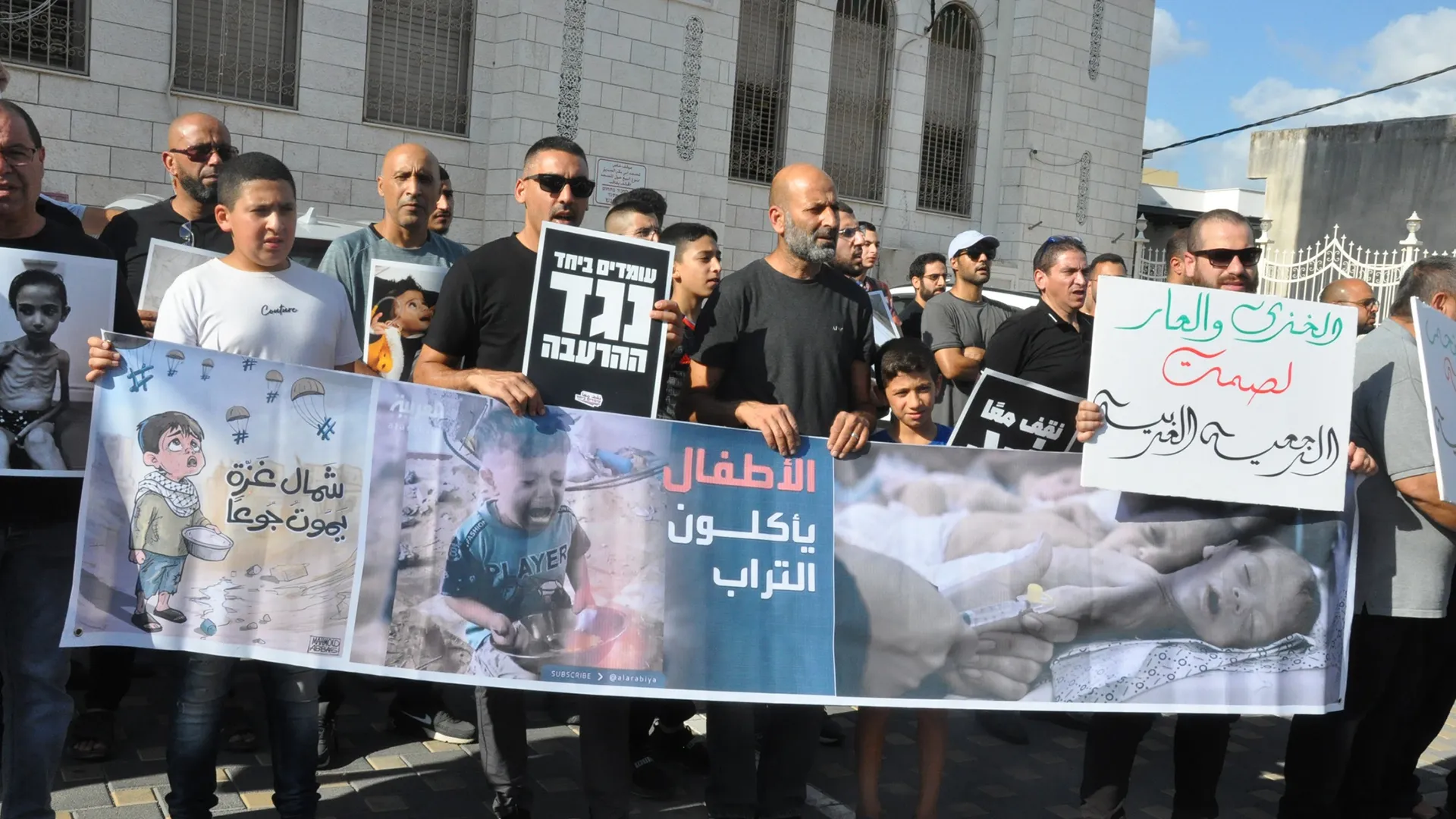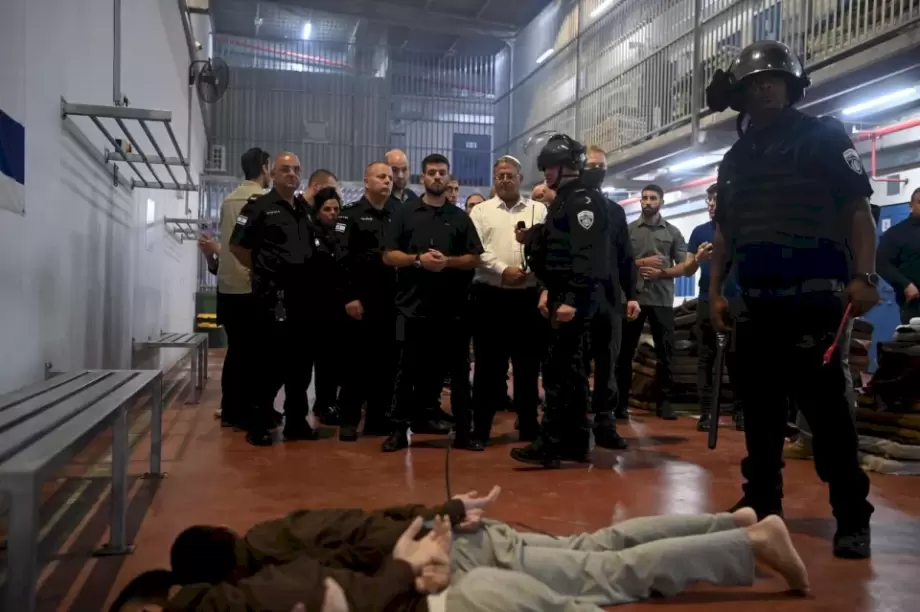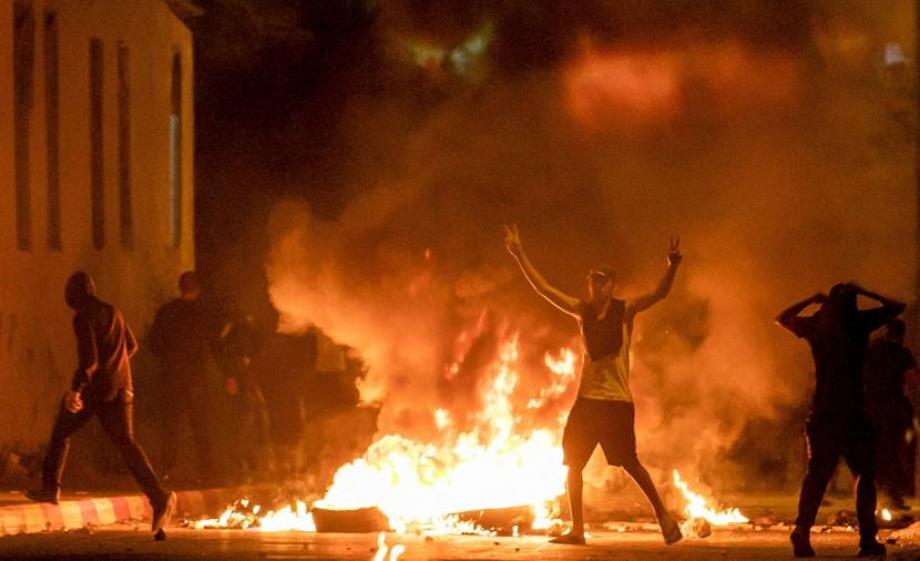Why Have ‘48 Palestinians Stayed ‘Silent’ Through Two Years of Israeli Genocide in Gaza?

“’48 Palestinians have not forgotten their roots and are trying to support Gaza in every possible way.”
Since “Israel’s” aggression on Gaza began, one question has lingered like an open wound: why has there been so little movement among ’48 Palestinians?
For two years of relentless bombardment and mass killings, only a handful of protests and small vigils have taken place, most of them in the later stages of the genocide.
The muted response has revived debate about why ’48 Palestinians, who interact more closely with Israeli Occupation society than their counterparts in the West Bank, have remained largely silent.
Official Israeli data show that ’48 Palestinians make up 21 percent of the population, about 1.9 million out of just over 9 million Israelis. They are the descendants of roughly 154,000 Palestinians who stayed on their land after the establishment of the Israeli Occupation on stolen Palestinian lands in 1948.

Behind Their Silence
Explaining the reasons for this silence, activist Mohammed Jazmawi from inside the occupied Palestinian territories says that since the war began, the Israeli Occupation has arrested most social media influencers and public figures and subjected them to inhumane treatment.
“The arrests often involved binding detainees’ hands, blindfolding them, and filming them against the backdrop of the Israeli flag while the national anthem played in an effort to humiliate them,” he told Al-Estiklal.
“National Security Minister Itamar Ben-Gvir was even seen bringing dogs into prisons and ordering them to be set on Palestinian detainees from inside the occupied Palestinian territories.”
According to Jazmawi, clicking “like” on a post about Gaza can lead to arrest on charges of supporting terrorism. Many face smear campaigns, the loss of their jobs, and the cutting off of their livelihoods.
One of the most striking examples was the arrest of Dalal Abu Amneh, a Palestinian singer and physician from Nazareth. Police detained her on charges of incitement and supporting Palestine just ten days after Operation al-Aqsa Flood on October 7, 2023. She was released days later but has since remained silent.
Jazmawi argued that such tactics spread fear among ’48 Palestinians, pushing families to abandon the idea of posting online or taking part in protests.
He pointed to other reasons as well, including the spread of violent crime in Arab communities. He said that every day at least five people are killed by criminal gangs and mafias that the Israeli Occupation has allowed to flourish, leaving people too fearful to speak out.
Murders and violence in the Palestinian communities inside the Israeli Occupation are rising steadily, leading to a loss of social security and increasing citizens’ fears, which are further fueled by the spread of weapons and the ongoing complicity of Israeli police in allowing crime to flourish in Arab society.
According to the Palestinian Information Center Mo3ta, murders in 2024 reached 235 victims, including 17 women and 10 children under 17, along with nearly 725 injured. It was the highest toll in decades.
Jazmawi said the Israeli Occupation has also encouraged ’48 Palestinians to take on loans for everything, from cars with monthly payments of $400 to vacations abroad, leaving them heavily indebted. Many, he added, have forgotten the Palestinian cause and focus instead on paying bills and avoiding the fallout from the war on Gaza.
Still, he insisted, ’48 Palestinians have not forgotten their roots and are trying to support Gaza in every possible way, even while living under Israeli Occupation authority and depending on it for work. He noted that they are left with few options, as even sending ten dollars can result in eight years in prison on terrorism charges. “We cannot speak out, and we cannot even provide financial support,” he said.

Context and Analysis
Assessing the reaction to the Israeli Occupation’s ongoing genocide in Gaza, another activist from inside “Israel” told Al-Estiklal that neither ’48 Palestinians nor those in the West Bank or elsewhere fulfilled their duty toward what has been happening. He explained that after Operation al-Aqsa Flood, the rules of the game completely changed.
The activist, who withheld his name out of fear of reprisals, said that the lack of mobilization stems mainly from threats and the fear of physical elimination or incitement from Israeli Occupation society.
He traced the roots of this back to the period before October 7, noting that if you asked any ’48 Palestinian about their central cause at that time, the answer would not have been Gaza, Palestine, or even al-Aqsa. That period, he said, was dominated by unprecedented waves of killings carried out by criminal gangs operating freely under “Israel’s” watch, leaving people paralyzed by intense fear.
According to him, neither clerics nor Islamic movements were able to curb the chaos. By the time October 7 arrived, people had already lost faith in the groups they once believed represented them.
On that day, he recalled, people celebrated, expressed excitement, and wrote posts on Facebook. But within two days, they were met with terrifying raids and arrests that spared no segment of society. The arrests continued, he said, even for ordinary posts such as prayers or simple words of solidarity with Gaza.
Clerics, too, were directly threatened. Some were told that if a stone was thrown at “Israel,” a bullet would answer it, a warning that assassinations were possible. While no assassinations occurred, the sense of danger spread widely.
He pointed to a striking example. After Israeli Occupation forces bombed the al-Ahli Arab Baptist Hospital in Gaza on October 17, 2023, killing more than 500 Palestinians, mostly women and children, attorney Ahmed Khalifeh and others organized a protest in Umm al-Fahm, vowing to break the silence. That very night, criminal gangs attacked Khalifeh’s house in what was seen as a warning. After that, protests nearly disappeared except for rare occasions.
According to the activist, every wave of arrests, especially under National Security Minister Itamar Ben-Gvir, sent a clear message that the Israeli Occupation state would tolerate no dissent. At the same time, Jewish society incited against Palestinians, threatening their jobs and livelihoods.
He added that anyone convicted of such charges would no longer be seen as simply standing with Gaza. Instead, they were immediately branded as supporters of October 7, a label considered unforgivable both socially and in terms of state security. Many, he said, paid the price by losing their businesses, being expelled from universities, or facing other forms of punishment.
As for recent demonstrations, the activist said they only began in May 2025, coinciding with the rise of new movements including an Israeli leftist group called Standing Together. These initiatives encouraged people to protest over issues such as hunger. In the past, anyone taking part in demonstrations was quickly accused of supporting Hamas. But he noted that the wall of fear has begun to crack, especially as protests emerge that are not led by Arabs or take place in predominantly Jewish cities.

What Are the Options?
When asked about possible options, activist Mohammed Jazmawi described ’48 Palestinians as the “beating heart” of the Israeli Occupation labor force. He argued that if doctors, construction workers, and others went on strike for two weeks to two months, the war on Gaza would collapse.
“If we stopped working, the state would grind to a halt,” he said, noting that many jobs cannot function without them. The reliance grew even stronger after October 7, when “Israel” shut down the West Bank, revoked all work permits, and pushed more than 115,000 laborers into unemployment. Only about 8,000 permits were later reinstated.
Still, Jazmawi admitted that people fear launching such an initiative. Anyone who tries might end up in prison, and many doubt whether the wider community would rally behind the move. For him, the only option left is for ’48 Palestinians to strike, shake off fear, and believe that sustenance comes from God, that what happened in Gaza deserves greater sacrifice.
Another activist, who withheld his name, said the choices today are far more complicated than during the “Uprising of Dignity” of May 2021. That wave of protests erupted in cities across “Israel” in response to forced evictions in Occupied Jerusalem, settler violence, and repeated raids on al-Aqsa Mosque. While it triggered arrests and crackdowns, its link to Gaza was weaker than today’s context, where every action is directly tied to the war.
A 2024 study by the Institute for Palestine Studies noted that political leaders inside the Israeli Occupation are maneuvering carefully. At best, they seek limited space within the political system, avoiding risks even under the parliamentary immunity provided by Knesset membership. The study documented how leaders appealed to the attorney general, the police commissioner, the head of Nazareth police, and even the Supreme Court to secure permission for small protests in Haifa and other occupied cities. Some demonstrations did take place, but they drew modest numbers.
The institute concluded that the political elite remains unable to mobilize mass protests. In contrast, NGOs and media groups have tried to fill the gap by organizing lectures, creating platforms for writing, and other low-level activities.
Al-Zaytouna Center for Studies and Consultations, in a July 2024 paper, outlined two main factors restricting ’48 Palestinians’ options. First is “Israel’s” history of dealing with this minority when it engaged in collective national action, especially the 2021 uprising, which posed a serious threat to “Israel’s” cohesion. Second is the nature of the current war, which spans multiple fronts: southern Lebanon, Syria, Iraq, Yemen, and the West Bank, all activated by the “Axis of Resistance” immediately after Operation al-Aqsa Flood.
According to the study, the opening of multiple fronts has elevated the existential threat to “Israel.” Leaders themselves have framed the war on Gaza not just as a “campaign of destruction” but as a “war of survival” or even a “second independence.”
The study stressed that expectations for a stronger reaction from ’48 Palestinians overlooked key factors that have directly limited their capacity and willingness to mobilize. At the same time, it noted that this reality is not fixed and remains open to shifts, depending on how events and battlefield dynamics unfold.








